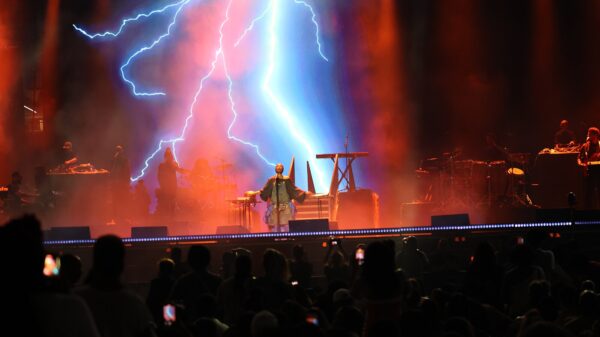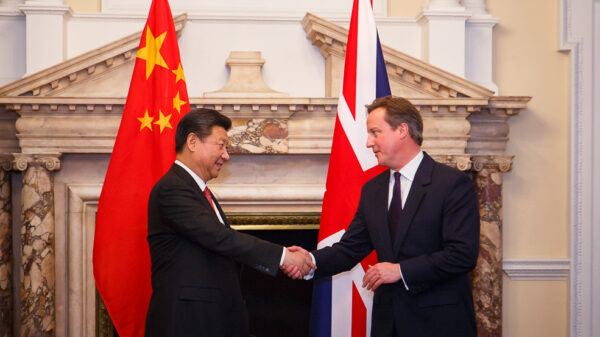Staff Writer Jagoda Ziolkowska analyses the recent surge in content highlighting the unprecedented economic development of Poland. She acknowledges the progress made but warns of the shortfalls from viewing her nation’s rise through Western rose-tinted glasses.
As the whole world is confronted with the necessity to reconsider its centuries-old ‘rich North – poor South’ divide, Europe’s power dynamics seem to be shifting as well. Recent months have seen a significant influx of articles, YouTube videos and opinion pieces focusing on the rise of Eastern and Central European countries, and their potential to overtake the traditionally dominant West. One of those players who seems to be garnering a lot of the media attention is Poland.
Indeed, in terms of GDP, Poland surpasses other post-communist countries, ranking sixth in the EU (falling behind Germany, France, Italy, Spain, and the Netherlands). This has been propelled by a significant upward trend in its average economic growth that was only significantly disrupted for the first time in 30 years by the pandemic driven global recession in 2020. Add to that Poland’s decisive response to Russia’s invasion of Ukraine, seen by many as a harbinger of its new leadership role in the EU, and the picture of influence indeed looks promising.
However, specifically chosen facts can sometimes obscure reality. Is Poland really an emerging economic power? Does it possess enough political heft and expertise to bear international undertakings responsibly? How does such a utopian image of the country align with the internal perspectives of its residents? And ultimately, what does such a narrative mean for Poland’s future?
The story goes as follows: Poland has had it tough. A history of partitions, disappearing from the map of Europe for over a century, colossal devastations during the two world wars, and stringent control of Moscow during the communist era made economic stability and growth very hard to achieve. And yet, Poland has now managed to do so. The economic crisis after the fall of the USSR was successfully handled thanks to a sensible economic transformation focused on privatisation (Balcerowicz’s plan) and entrepreneurial enthusiasm for starting businesses among the Polish population. Additionally, joining the European Union opened Poland’s doors to European markets and attracted Foreign Direct Investment, drawn in by the prospect of a relatively well-educated and cost-effective workforce, as well as low transportation costs to Western-European importers. Step by step, through hard work and sound policies, Poland effectively built its strength and status and now has the potential to surprise the world by overtaking Western countries. A compelling story.
Interestingly, this is not a summary of just a single video; the majority of recent content about Poland fits into this exact pattern. What we have here is a “straightforward success story”, is how Marcin Kuśmierczyk from the foreign policy analysis YouTube channel Polityka Zagraniczna put it when speaking to Roar News. In other words, the fact that the world relies on storytelling manifests itself again – the people love an underdog.
However this premise has a side effect; namely the output of overwhelmingly favourable content omits important details and insights. “Any story about any country that is served to an outsider, and especially by an outsider, must be full of simplifications, so I think it’s natural in this process,” says Kuśmierczyk.
This nevertheless means that this sunny celebratory narrative masks shadows that are imperceptible, unless you look from within.
One of these fields is the economy. You might have heard about forecasts suggesting that Poland is set to surpass the United Kingdom in terms of the standard of living by 2030. Even leading UK politicians have jokingly warned of such a “shocking state of affairs”. While such comparisons can undoubtedly stroke some Polish egos and cause mild panic among the residents of Great Britain, a few things should be noted. First, these calculations are made in terms of purchasing power parity, where the Polish złoty (Poland’s currency) is significantly weaker than the British pound (1 GBP ≈ 5.12 PLN). Second, for this scenario to come true, Poland would need to maintain its current growth rate, which, although not impossible, would certainly be challenging. However, that doesn’t appear to be the most important facet of the situation.
The development of entrepreneurship in Poland is in question – and this is not to do with any sudden drop in business ingenuity among the citizens. Indeed, although many emigrants have returned to the country due to the significant improvement in living conditions, a significant number of Polish entrepreneurs have left Poland to start businesses abroad in countries such as Georgia or Albania, due to the notoriously complicated tax laws (the total length of all laws and regulations making up the Polish tax system is over 5,700 pages, not to mention the far more daunting number of over 38,000 interpretations of this law issued by Polish tax authorities in 2015 alone, each averaging 5 pages; this is a record number in the EU). Familiarising oneself with all those documents is extremely hard to say the least, especially without an experienced (and expensive) lawyer at hand. Despite some back-tracking from Polish government, the complex tax system has led for some to look for alternative destinations, where they could focus on creating their businesses instead of dreading the slightest mistake at every step. Consequently, the honest work of Poles doesn’t go to the Polish budget, but to those of other nations.
When asked by Roar why he left his homeland and decided to obtain Georgian tax residency, a Polish businessman responds bitterly: “As an entrepreneur, for almost 25 years I have felt like an entity to which the state tried to prove that it has power over it, and instead of offering help, focused on enforcing penalties. The overall conduct of Polish officials and authorities consists of excessively complicating the processes of granting aid and creating the possibilities to withdraw it due to an entrepreneur’s failure to meet often absurd and hidden requirements that are difficult to access for the general public”.
Such a highly convoluted and paperwork-heavy nature of conducting economic activities certainly doesn’t appear to be the best strategy for keeping domestic investments and further attracting foreign investors.
Additionally, there was a social assistance scheme established a few years ago by the Law and Justice government, with the flagship program being “Family 500+“. In which 500 PLN [≈ 95 GBP] is provided by the government for each child in a family every month without specific enforced guidelines on how it is to be spent, paradoxically often makes work seem financially unrewarding.
Such regulations, combined with the introduction of pandemic-related restrictions and countermeasures, which in many cases turned out to be at least insufficient (it is worth emphasizing here, however, that this is not a problem limited to Poland), have prompted many entrepreneurs to resign. Last year alone there were nearly 350,000 applications for the suspension of business activity submitted – a record number in a decade. The first half of 2023 saw over 110,000 of such cases recorded, and this number continues to grow.
One particularly persistent and severe cause of this seems to be the exceptional number and frequency of inspections carried out by various Polish authorities.
“There is a significant level of mistrust towards all forms of economic activity, perhaps partly due to the lack of realisation that a substantial portion of GDP is created by medium-size and small entrepreneurs,” says the owner of a business operating in Poland for over a decade. “In Poland, people who have achieved something are still thought of as those who did it in a not entirely honest way. And that’s completely untrue. I think we still have in the back of our minds that saying, very famous in the 1990s, that the first million must be stolen.“
Political populist ideologies and attempts by parties to win or appease specific parts of the electorate may also come into play. “This is often the rhetoric of those in power, that the rich must be taken from because they have too much and given to those who have less. It’s a bit like punishing someone for their resourcefulness, creativity, and the ability to find their way in the market”. Importantly, the entrepreneur emphasises that no one mentions any reluctance to help those in need – the criticism is directed at methods that pin social groups against each other and can often discourage action rather than incentivise it.
Poland is full of entrepreneurial people – they played a significant role in its reconstruction and then pushed it towards an impressive civilisational leap. From technological powerhouses such as Cosmose AI, founded on Poles being some of the most skilled programmers in the world, through to simple yet ingenious ideas developed in a professional and sustainable way like InPost. Additionally there have been nationwide movements of hearts and bodies in support of initiatives such as the Great Orchestra of Christmas Charity, which annually engages thousands of: volunteers, artists, and ordinary passers-by, uniting during events in practically every town in Poland and many abroad to raise money for hospital patients in need. Let all of these be evidence of Poles’ willingness and motivation to act. However, this privately driven action requires a favourable business environment. The state should show trust to entrepreneurs, not police them; this type of thinking shows traces of the mentality of the communist times and is not fitting for the modern European country that Poland wants to consider itself as.
But what about heralding Poland a rising ‘superpower’ and its forthcoming leadership among European countries? “Poland’s position on the international stage and the way the Internet or people in the West perceive us – those are two very different things” notes Marcin Kuśmierczyk. “Poland does not participate in key discussions within the European Union. We don’t talk about issues that determine the future of the EU because we think that these discussions, for example, do not affect us”.
There is no doubt that as the EU’s biggest net beneficiary, Poland has profited immensely from all the investments and the inflow of foreign capital. However, this period is coming to an end. Poland’s standing will soon change to that of a net contributor, especially if the EU fulfils its plans to expand to new countries. This could result in the rise of anti-EU sentiments, which are already prominent in the country. It is, however, essential to remember that one cannot have it all: the process of bridging the gaps between member states seems to be slowly reaching its goal, and with an increase in significance comes an increase in responsibility.
Low activity at levels of management and the tendency to adopt a reactionary approach may result from several factors: the Eastern-European state complex of years spent trying to catch up with historically more powerful Western countries, but also the lack of internal coherence in adopting positions towards EU affairs. “Foreign policy, and above all EU policy, has become an arena for playing Polish domestic politics” comments Kuśmierczyk. To prevent at least some of the colossal negative impacts of polarisation, forward-thinking is urgently needed with policies centred on a consisentent approach to Europe.
Poland must most of all resolve its internal issues and establish a common course of action if it wants to be relevant on the international arena – it is in the country’s best interest. Playing out internal disputes on the EU forum certainly doesn’t do much service to the country’s respectability and significantly limits the potential for influence that Poland could exercise.
At the same time, interest from abroad opens up an unprecedented opportunity: Poland has the chance to rebrand its image away from the victim-country scourged throughout history and shed the largely self-imposed martyrdom. The conversation about Poland’s past does not have to be limited to the acknowledgment of its tragedy; it can be a source of inspiration for a new generation of artists, entrepreneurs and social activists.
“I think it’s time for a story about a new Poland, a Poland that is modern, a Poland that isn’t impoverished, a Poland that isn’t oppressed by anyone” says Kuśmierczyk. He also adds that the responsibility for creating a positive view of the country should not be left to those in power exercising top-down actions focused on a purely strategic use of the soft power tool – the initiative should lie with the citizens. The good news is, this process takes place completely naturally and is beneficial to all. Genuine celebrations of the richness of native culture can attract the curiosity of foreigners, while enhanced by the triumphs of Polish artists at international venues. Grand narratives are an important part of every nation but ultimately it is the people’s actions that build it.
Indeed, the magnitude of changes that have occurred in Poland over recent years can astonish, especially considering the country’s challenging history. There’s no denying it has gone through a lot. However, it’s also worth paying attention to what still lies ahead – the many challenges, their nature, and ideas of how they can be overcome. Whether anything changes after the recent parliamentary election also remains to be seen. May Poland’s future be as favorable as its Western neighbours suggest.
















